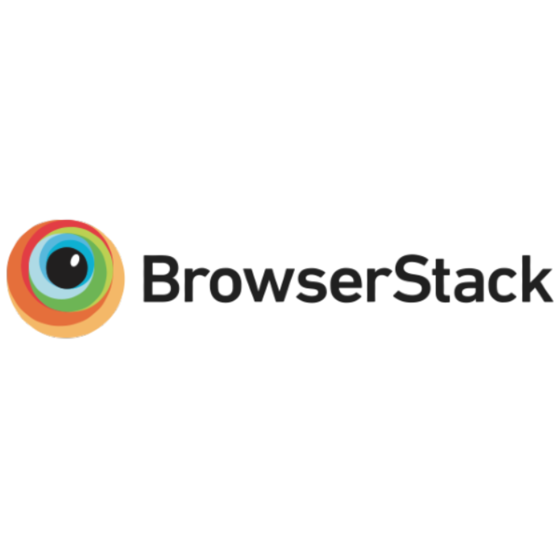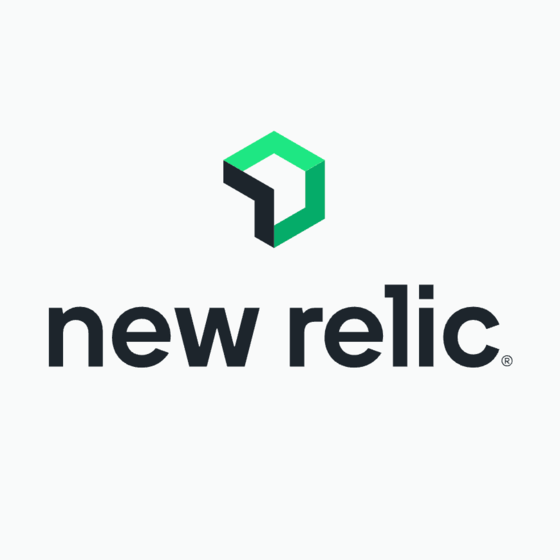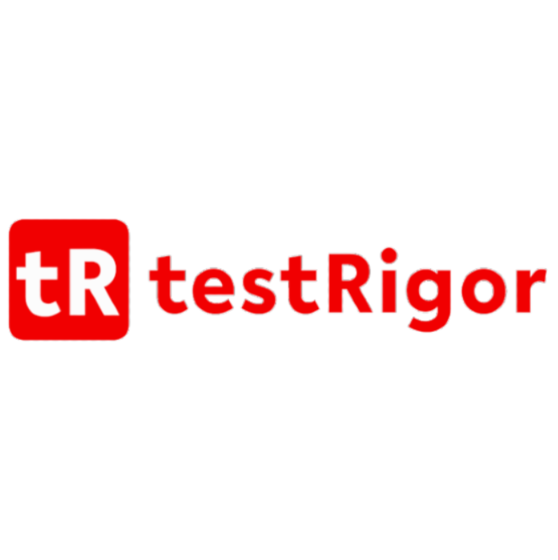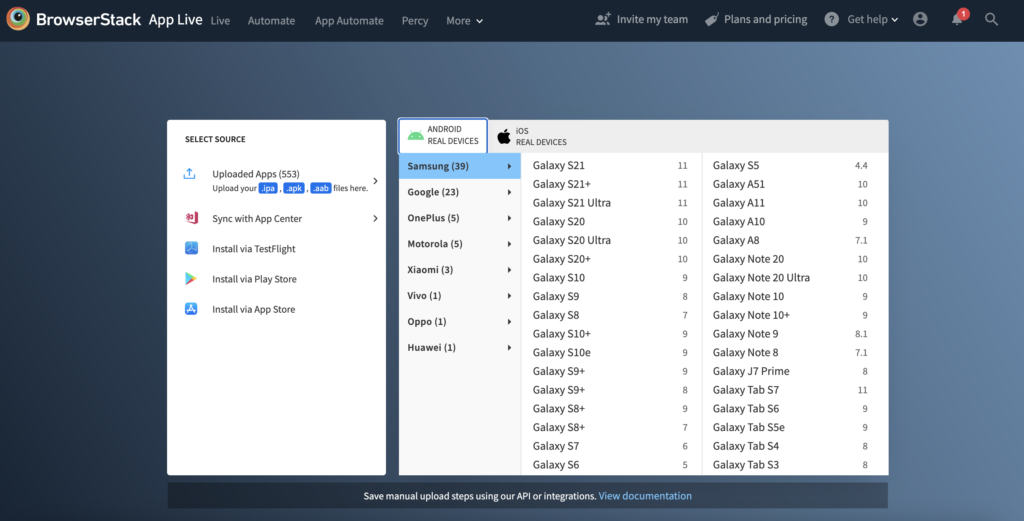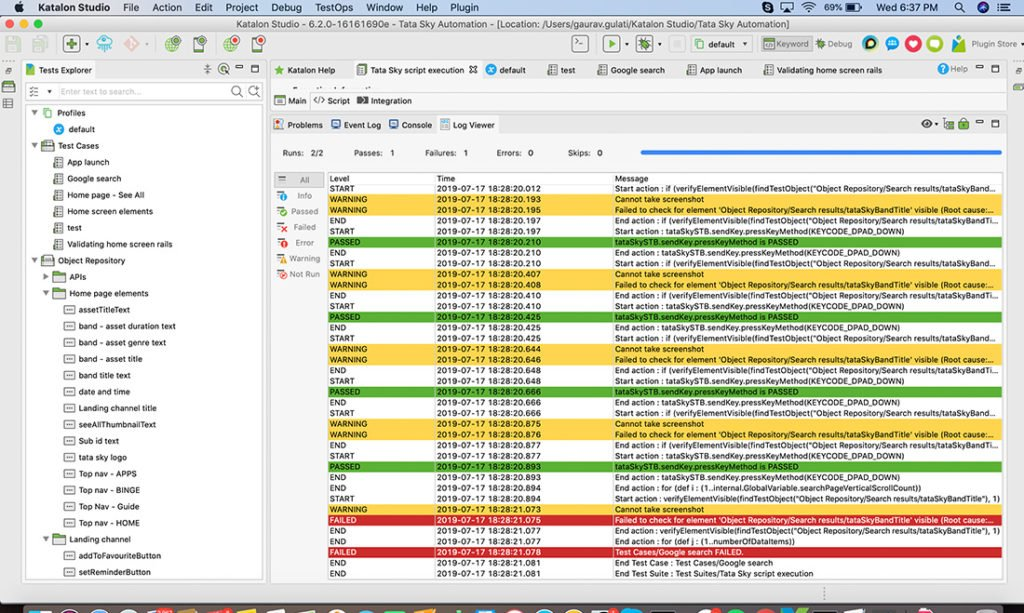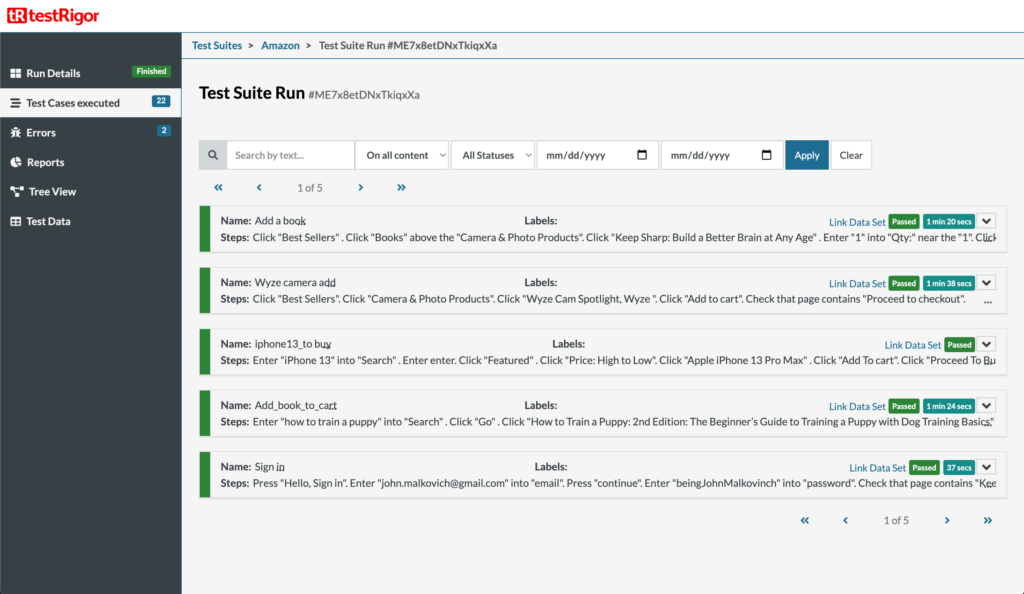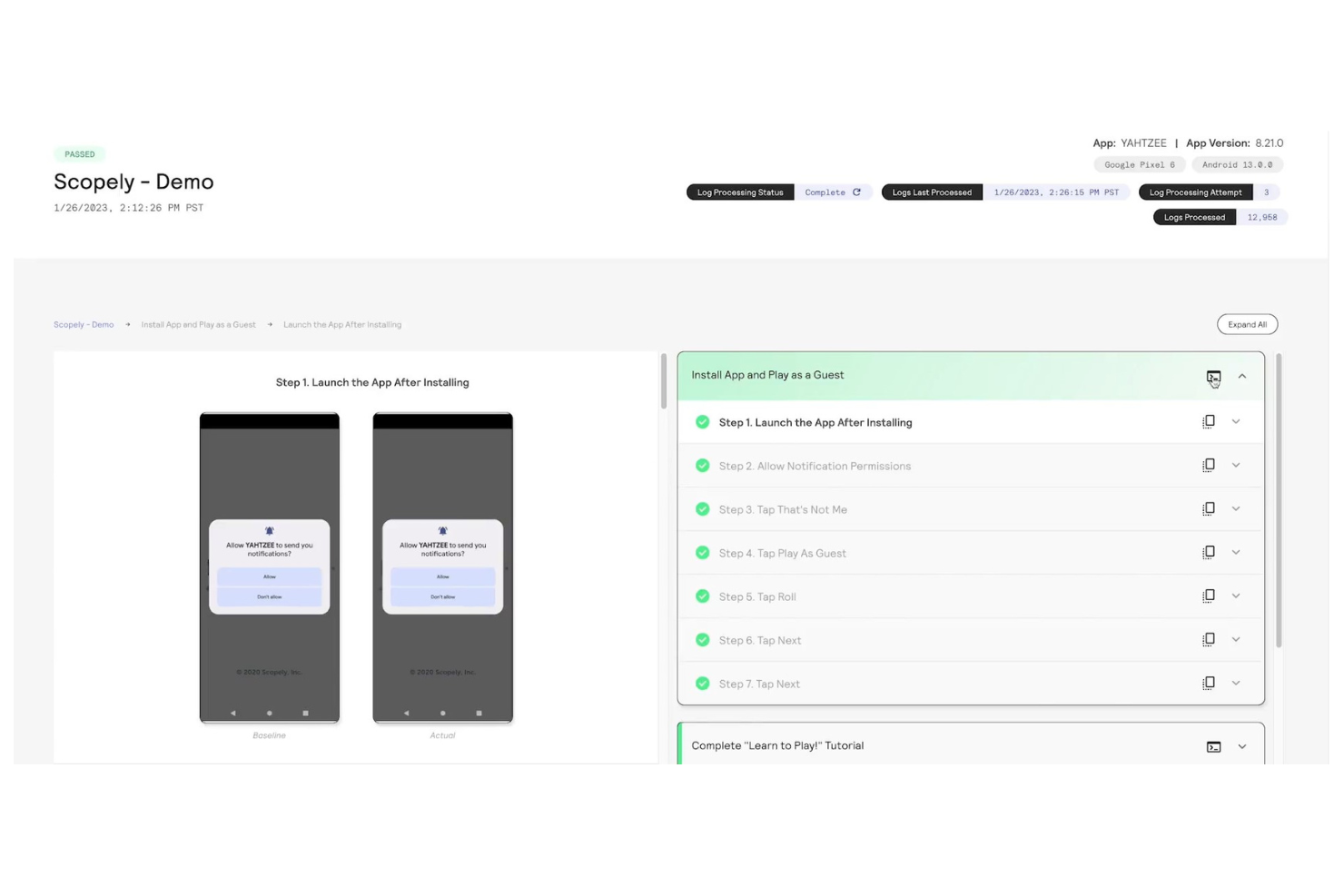Best Mobile Testing Tools Shortlist
Here’s my shortlist of the best mobile testing tools:
Our one-on-one guidance will help you find the perfect fit.
Ensuring your app works flawlessly across devices is no small feat. You need tools that fit your team's needs and help catch bugs before your users do. That's where mobile testing tools come in. They save time, reduce stress, and improve your app's quality.
I've spent years testing software and know the challenges you face. My goal is to provide you with honest, unbiased reviews of the best mobile testing tools out there. You'll find insights into features, user-friendliness, and how these tools can fit into your workflow.
Dive into my top picks and find the right solution for your team. Let’s make mobile testing a breeze.
Why Trust Our Software Reviews
We’ve been testing and reviewing SaaS development software since 2023. As tech experts ourselves, we know how critical and difficult it is to make the right decision when selecting software. We invest in deep research to help our audience make better software purchasing decisions.
We’ve tested more than 2,000 tools for different SaaS development use cases and written over 1,000 comprehensive software reviews. Learn how we stay transparent & check out our software review methodology.
Best Mobile Testing Tools Summary
This comparison chart summarizes pricing details for my top mobile testing tools selections to help you find the best one for your budget and business needs.
| Tool | Best For | Trial Info | Price | ||
|---|---|---|---|---|---|
| 1 | Best for team collaboration | Free demo available | Pricing upon request | Website | |
| 2 | Best for agile teams | Free trial + free demo available | Pricing upon request | Website | |
| 3 | Best for cross-browser testing | Free plan available + free demo | From $15/user/month (billed annually) | Website | |
| 4 | Best for live device testing | Free trial available | From $15/user/month (billed annually) | Website | |
| 5 | Best for global device access | Free demo available | From $99/user/month | Website | |
| 6 | Best for performance monitoring | Free plan + demo available | Pricing upon request | Website | |
| 7 | Best for beginners | Free plan available + free demo | From $183/user/month | Website | |
| 8 | Best for real device testing | Free trial available + free demo | From $83/month | Website | |
| 9 | Best for no-code automation | Free trial available + free demo | From $300/month (billed annually) | Website | |
| 10 | Best for physical device testing | Free trial + free demo available | Pricing upon request | Website |
-

Docker
Visit WebsiteThis is an aggregated rating for this tool including ratings from Crozdesk users and ratings from other sites.4.6 -

Pulumi
Visit WebsiteThis is an aggregated rating for this tool including ratings from Crozdesk users and ratings from other sites.4.8 -

GitHub Actions
Visit Website
Best Mobile Testing Tool Reviews
Below are my detailed summaries of the best mobile testing tools that made it onto my shortlist. My reviews offer a detailed look at the key features, pros & cons, integrations, and ideal use cases of each tool to help you find the best one for you.
QA Wolf is a hybrid test automation service and platform designed for web and mobile application testing. It leverages the Playwright framework to automate the creation, execution, monitoring, and overall test maintenance to provide a comprehensive, end-to-end solution.
As a mobile testing tool, QA Wolf excels with its ability to perform in-depth performance tests. It can evaluate application performance, including API response time, page and component rendering times, and CRUD operations. In collaboration with the QA Wolf team, benchmarks are set and test results are monitored to ensure consistent performance across different traffic loads and devices.
Furthermore, as part of its hybrid approach, QA Wolf provides 24-hour test maintenance. Their team of QA experts is available to identify issues, monitor tests, and fix any breaks automatically at any time of day. They also verify each flagged bug for optimal accuracy in bug reports. Overall, this approach helps ensure tests remain consistent and relevant, and users can receive the most accurate information for smoother mobile app development.
QA Wolf integrates with Azure DevOps, Travis CI, Jenkins, GitHub, GitLab, Bitbucket, Jira, Asana, Linear, Slack, Microsoft Teams, and CircleCI.
Tricentis Testim Mobile is a cloud-based testing solution for iOS and Android apps, designed for teams seeking efficient test automation. It serves businesses needing to automate testing across native, hybrid, and cross-platform applications. The tool supports the testing process without requiring complex installations or coding expertise.
Why I picked Tricentis Testim Mobile: It offers a Virtual Mobile Grid for seamless test execution, which is ideal for agile teams. The platform integrates well with CI/CD pipelines, enhancing test management and stability. It provides comprehensive dashboards that help your team quickly diagnose and debug failures. This makes it a valuable tool for teams facing challenges in mobile testing complexity and scalability.
Standout features & integrations:
Features include automated testing that saves your team time and effort. It enhances test stability, ensuring reliable test outcomes. The platform also supports quick debugging through detailed dashboards, streamlining the testing process.
Integrations include Jira, GitHub, Jenkins, Azure DevOps, CircleCI, Bitbucket, TestRail, Slack, GitLab, and Sauce Labs.
Pros and cons
Pros:
- Integrates with CI/CD pipelines
- Supports hybrid apps
- Virtual Mobile Grid feature
Cons:
- May need initial training
- Limited to mobile platforms
mobot-live/LambdaTest is a cloud-based platform designed to help teams perform automated and manual cross-browser testing. It is ideal for businesses needing to ensure their apps work consistently across different browsers and devices. The platform allows for both mobile and web app testing with ease.
Why I picked mobot-live/LambdaTest: It provides a wide range of browser and OS combinations, making it an excellent choice for cross-browser testing. With real-time testing capabilities, your team can quickly identify and fix issues. The platform supports parallel testing, which speeds up the testing process significantly. It's a straightforward solution for teams aiming to enhance app compatibility across multiple environments.
Standout features & integrations:
Features include real-time testing, which allows your team to catch bugs as they happen. It offers parallel testing to speed up the process and improve efficiency. The platform also provides a wide range of browser and OS combinations to ensure thorough coverage.
Integrations include Jira, GitHub, Slack, CircleCI, Jenkins, Bitbucket, GitLab, Azure DevOps, Asana, and Trello.
Pros and cons
Pros:
- Parallel testing capability
- Real-time testing feature
- Wide browser support
Cons:
- Occasional latency issues
- Not ideal for non-web applications
BrowserStack is a cloud-based testing platform that allows teams to test their mobile applications on real devices. It caters to developers and QA teams who need to ensure app functionality across various devices and platforms. This tool provides access to a wide range of real devices for testing purposes.
Why I picked BrowserStack: It offers real device testing, providing your team with the ability to test apps in real-world conditions. The platform includes a vast selection of devices, ensuring comprehensive coverage for your testing needs. With instant access to new devices and OS versions, your team can keep up with the latest changes. This makes it a reliable choice for teams aiming for thorough testing and quality assurance.
Standout features & integrations:
Features include instant access to a wide variety of devices, which ensures your app is tested across multiple environments. It also offers real-time debugging, allowing your team to identify and fix issues on the spot. Additionally, BrowserStack provides access to the latest OS versions as soon as they are released.
Integrations include Jira, Jenkins, Slack, GitHub, GitLab, Trello, Bitbucket, Azure DevOps, CircleCI, and Asana.
Pros and cons
Pros:
- Real-time debugging
- Instant access to new devices
- Wide device selection
Cons:
- Limited offline capabilities
- Occasional latency issues
Headspin is a testing platform that provides real-world user experience insights across various devices and networks. It's designed for teams who need to understand app performance in different global locations. The platform offers the ability to test on real devices, providing valuable data for improving user experience.
Why I picked Headspin: It enables your team to access devices globally, ensuring comprehensive testing across different regions. The tool offers real-time performance monitoring, so you can quickly identify and address issues affecting user experience. With its detailed analytics, your team gains insights into app performance, which aids in making informed improvements. This makes Headspin a strong choice for teams prioritizing global reach and detailed performance data.
Standout features & integrations:
Features include real-time performance monitoring, which helps your team catch issues as they happen. It provides detailed analytics that offer insights into user experience across various devices. Additionally, the platform allows for testing on real devices, ensuring accurate performance data.
Integrations include Jira, Jenkins, Slack, GitHub, GitLab, Azure DevOps, CircleCI, Bitbucket, Asana, and Trello.
Pros and cons
Pros:
- Detailed analytics
- Real-time performance insights
- Global device access
Cons:
- May require technical expertise
- Complex setup requirements
New Relic is a performance monitoring tool designed for developers and IT operations teams to gain insights into application performance and infrastructure. It helps businesses identify and resolve issues quickly, ensuring optimal user experience. The platform provides detailed analytics and monitoring capabilities across various environments.
Why I picked New Relic: It offers comprehensive performance monitoring, allowing your team to track application health in real-time. The tool provides detailed insights into application performance, helping you identify bottlenecks and improve efficiency. With its scalable architecture, New Relic supports businesses of all sizes, making it versatile for different needs. This makes it an excellent choice for teams focused on maintaining high application performance.
Standout features & integrations:
Features include real-time monitoring, which helps your team keep track of application performance as it happens. It provides detailed analytics that offer insights into various performance metrics. The platform is also scalable, making it suitable for businesses of different sizes.
Integrations include AWS, Azure, Google Cloud Platform, Slack, PagerDuty, Jira, GitHub, Jenkins, Kubernetes, and Datadog.
Pros and cons
Pros:
- Real-time monitoring capabilities
- Scalable for all business sizes
- Comprehensive performance insights
Cons:
- Requires technical expertise
- Can be resource-intensive
Katalon Studio is an all-in-one automation testing solution designed for testers and developers, particularly those new to automation. It supports web, API, mobile, and desktop testing, making it versatile for various testing needs. The platform aims to simplify the testing process with its user-friendly interface and comprehensive features.
Why I picked Katalon Studio: It's beginner-friendly, offering a simple setup and a straightforward interface. The tool provides built-in keywords, which help your team create tests without writing extensive code. With its record and playback feature, you can quickly capture test scenarios, making it easier for those new to testing. This makes it an accessible option for teams just starting with automation.
Standout features & integrations:
Features include a record and playback feature, which simplifies capturing test scenarios for your team. It offers built-in keywords that reduce the need for coding, speeding up test creation. The platform also provides cross-platform testing, ensuring your applications are tested across different environments.
Integrations include Jira, Jenkins, Slack, GitHub, TestRail, qTest, Azure DevOps, Kobiton, GitLab, Bitbucket, and Sauce Labs.
Pros and cons
Pros:
- Supports multiple platforms
- Built-in keywords
- Beginner-friendly interface
Cons:
- May require initial learning
- Limited advanced features
Kobiton is a mobile testing platform that enables teams to conduct tests on real devices. It caters to QA teams and developers who need to ensure their apps function well across different devices and operating systems. The platform provides access to a wide array of real devices, ensuring accurate testing results.
Why I picked Kobiton: It offers real device testing, which is critical for accurate app performance assessments. Your team can access a broad range of devices, ensuring comprehensive coverage. The platform supports both manual and automated testing, allowing flexibility in how you approach testing. This makes it a valuable tool for ensuring app compatibility and performance across various devices.
Standout features & integrations:
Features include the ability to conduct both manual and automated testing, providing flexibility for your testing processes. It offers real-time access to a wide variety of devices, ensuring thorough testing coverage. Additionally, the platform supports session recording and playback, which helps your team review and analyze test results effectively.
Integrations include Jira, Jenkins, Slack, GitHub, GitLab, Bitbucket, TestRail, qTest, Azure DevOps, and Travis CI.
Pros and cons
Pros:
- Session recording feature
- Supports manual and automated testing
- Real device access
Cons:
- Limited offline capabilities
- May require technical setup
testRigor is an AI-driven test automation tool designed for teams that want to create tests using plain English. It's ideal for organizations looking to automate testing across web, mobile, and other platforms without coding expertise. It focuses on reducing maintenance time and improving test coverage.
Why I picked testRigor: It offers no-code testing, allowing your team to create tests using natural language. The platform's AI-driven capabilities automatically generate stable tests based on user behavior, which enhances the testing process. It supports multiple platforms, including web and mobile, without requiring coding skills. This makes it accessible and efficient for diverse teams.
Standout features & integrations:
Features include the ability to automate tests using plain English, which simplifies the process for non-technical users. It also provides support for testing across web, mobile, desktop, and APIs. High security standards, including SOC2 and HIPAA compliance, ensure data protection.
Integrations include GitHub, Jenkins, Jira, Slack, CircleCI, TestRail, Bitbucket, GitLab, Azure DevOps, and BrowserStack.
Pros and cons
Pros:
- High test coverage
- Plain English instructions
- No-code test creation
Cons:
- Requires annual commitment
- Limited to non-game testing
Mobot is a mobile testing solution that leverages real, physical devices to provide accurate testing results. It's designed for QA teams and developers who need to ensure their applications perform well on actual hardware. The platform focuses on delivering precise test results by using real devices for testing purposes.
Why I picked Mobot: It excels in physical device testing, ensuring that your app's performance is validated on actual hardware. This approach helps your team catch issues that might not be visible in emulators or simulators. Mobot's ability to test across a wide range of devices provides comprehensive coverage for your testing needs. This makes it a solid choice for teams prioritizing real-world app performance validation.
Standout features & integrations:
Features include real device testing, which helps your team identify performance issues that emulators might miss. It offers a wide range of devices for testing, ensuring thorough coverage. The platform also provides detailed reports that help your team analyze and improve app performance.
Integrations include Jira, Slack, Asana, Trello, GitHub, TestRail, Bitbucket, GitLab, Jenkins, and Azure DevOps.
Pros and cons
Pros:
- Detailed performance reports
- Wide device variety
- Real hardware for testing
Cons:
- Requires technical setup
- High entry cost
Other Mobile Testing Tools
Here are some additional mobile testing tools options that didn’t make it onto my shortlist, but are still worth checking out:
- Codemagic
For CI/CD integration
- Ubertesters
For crowdtesting solutions
- Robotium
For Android app testing
- GPT Driver
For AI-driven insights
- BlazeMeter
For performance testing
- TestGrid
For cloud-based testing
- Autify
For AI-driven testing
- SmartBear
For testing automation
- Squish
For GUI testing
- pCloudy
For device management
- TestingWhiz
For codeless automation
- BlazeMeter
For performance testing
- Experitest
For continuous testing
- Selenium WebDriver
Automated testing of web and mobile applications by providing a programming interface to interact with user interface elements.
- Test.io
For exploratory testing
- BitBar
For app scalability
- Selendroid
For mobile web testing
- Ranorex Studio
For desktop applications
Mobile Testing Tool Selection Criteria
When selecting the best mobile testing tools to include in this list, I considered common buyer needs and pain points like compatibility across devices and ease of integration. I also used the following framework to keep my evaluation structured and fair:
Core Functionality (25% of total score)
To be considered for inclusion in this list, each solution had to fulfill these common use cases:
- Test automation
- Cross-platform testing
- Real device testing
- Performance testing
- Bug tracking
Additional Standout Features (25% of total score)
To help further narrow down the competition, I also looked for unique features, such as:
- AI-driven testing
- Visual testing capabilities
- Real-time analytics
- Customizable test environments
- Integration with CI/CD tools
Usability (10% of total score)
To get a sense of the usability of each system, I considered the following:
- Intuitive interface
- Easy navigation
- Minimal learning curve
- Responsive design
- Customizable dashboards
Onboarding (10% of total score)
To evaluate the onboarding experience for each platform, I considered the following:
- Availability of training videos
- Interactive product tours
- Comprehensive documentation
- Webinars and tutorials
- Access to support chatbots
Customer Support (10% of total score)
To assess each software provider’s customer support services, I considered the following:
- 24/7 support availability
- Multiple support channels
- Quick response times
- Access to a knowledge base
- Dedicated account managers
Value For Money (10% of total score)
To evaluate the value for money of each platform, I considered the following:
- Pricing transparency
- Competitive pricing
- Flexible subscription plans
- Free trial availability
- Features included in base plan
Customer Reviews (10% of total score)
To get a sense of overall customer satisfaction, I considered the following when reading customer reviews:
- Positive feedback on functionality
- Praise for ease of use
- Comments on reliability
- Customer service experiences
- Overall satisfaction ratings
How to Choose Mobile Testing Tools
It’s easy to get bogged down in long feature lists and complex pricing structures. To help you stay focused as you work through your unique software selection process, here’s a checklist of factors to keep in mind:
| Factor | What to Consider |
| Scalability | Ensure the tool can grow with your team. Check if it supports a wide range of devices and can handle increased test loads as your app user base expands. |
| Integrations | Look for seamless integration with your existing tools, like CI/CD systems and bug tracking software, to streamline workflows and increase productivity. |
| Customizability | Consider if the tool allows you to tailor testing processes to fit your specific needs, such as custom test cases or personalized dashboards. |
| Ease of Use | Evaluate the learning curve and interface. Your team should quickly adapt to the tool without extensive training, ensuring efficient test execution. |
| Budget | Assess pricing plans and ensure they align with your financial constraints. Consider the total cost of ownership, including any hidden fees or additional costs. |
| Security Safeguards | Verify that the tool complies with industry standards and offers data protection features to ensure the safety of your application data during testing. |
| Support | Check if the vendor provides reliable customer support, including access to resources like tutorials, documentation, and live assistance when needed. |
| Performance | Ensure the tool delivers accurate results with minimal downtime. It should handle complex test scenarios efficiently without compromising speed or accuracy. |
Trends in Mobile Testing Tools
In my research, I sourced countless product updates, press releases, and release logs from different mobile testing tools vendors. Here are some of the emerging trends I’m keeping an eye on:
- AI-driven testing: AI is being used to create smarter testing processes, reducing manual effort and increasing accuracy. Tools like testRigor use AI to understand user behavior and adapt tests accordingly, helping teams catch bugs faster.
- Real user condition testing: More tools are simulating real-world conditions, like varying network speeds and battery states, to give a better picture of how apps perform. Mobot, for example, tests on actual devices under real conditions.
- Codeless test creation: There's a growing demand for tools that allow non-technical users to create tests without coding. Platforms like Katalon Studio offer codeless options, making testing accessible to a broader range of team members.
- Enhanced security features: With increasing data privacy concerns, tools are now focusing on stronger security measures. New Relic, for instance, offers compliance with industry standards to ensure data protection during testing.
- Cross-platform consistency: Ensuring apps work consistently across different platforms is becoming crucial. Kobiton provides extensive device coverage to help teams ensure their apps perform well everywhere.
What Are Mobile Testing Tools?
Mobile testing tools are software solutions used to test the functionality, performance, and usability of mobile applications. They are generally used by QA testers, developers, and IT professionals to ensure apps work correctly across different devices and operating systems. Features like real device testing, AI-driven insights, and codeless test creation help with efficient bug detection, user experience improvement, and accessibility for non-technical team members. Overall, these tools provide the value of ensuring mobile apps perform well and meet user expectations.
Features of Mobile Testing Tools
When selecting mobile testing tools, keep an eye out for the following key features:
- Real device testing: Allows testing on actual devices to identify and fix issues that emulators might miss, ensuring accurate performance results.
- AI-driven insights: Utilizes artificial intelligence to streamline test processes and enhance accuracy by adapting to user behavior and changes in the app.
- Codeless test creation: Enables non-technical users to create and execute tests without writing code, making testing accessible to a broader team.
- Cross-platform compatibility: Ensures that applications perform consistently across various devices and operating systems, enhancing user experience.
- Performance monitoring: Tracks app performance in real-time to quickly identify bottlenecks and improve efficiency.
- Integration capabilities: Offers seamless connectivity with existing tools like CI/CD systems and bug trackers to enhance workflow efficiency.
- Security safeguards: Provides data protection and compliance with industry standards, ensuring the safety of sensitive information during testing.
- Customizable dashboards: Allows users to tailor their interface for better visibility and management of testing processes and results.
- Parallel testing: Supports conducting multiple tests simultaneously, reducing the time needed for test execution and speeding up the development cycle.
Benefits of Mobile Testing Tools
Implementing mobile testing tools provides several benefits for your team and your business. Here are a few you can look forward to:
- Improved app quality: By testing on real devices and simulating real-world conditions, these tools help ensure your app performs well and meets user expectations.
- Faster release cycles: Features like parallel testing and AI-driven insights speed up the testing process, allowing you to release updates and new features more quickly.
- Cost savings: Codeless test creation and integration capabilities reduce the need for extensive manual testing and streamline workflows, saving time and resources.
- Enhanced user experience: Cross-platform compatibility and performance monitoring help ensure consistent app behavior across different devices, leading to a better user experience.
- Increased team efficiency: Customizable dashboards and real-time analytics help your team manage testing processes more effectively, improving overall productivity.
- Data security: Security safeguards ensure that sensitive information is protected during testing, providing peace of mind for your team and users.
Costs and Pricing of Mobile Testing Tools
Selecting mobile testing tools requires an understanding of the various pricing models and plans available. Costs vary based on features, team size, add-ons, and more. The table below summarizes common plans, their average prices, and typical features included in mobile testing tools solutions:
Plan Comparison Table for Mobile Testing Tools
| Plan Type | Average Price | Common Features |
| Free Plan | $0 | Limited device access, basic testing capabilities, and community support. |
| Personal Plan | $5-$25/user/month | Real device testing, codeless test creation, and basic integrations. |
| Business Plan | $50-$100/user/month | Cross-platform compatibility, advanced analytics, and priority customer support. |
| Enterprise Plan | $150-$300/user/month | Customizable dashboards, extensive integrations, dedicated account management, and enhanced security. |
Mobile Testing Tools (FAQs)
Here are some answers to common questions about mobile testing tools:
How do I choose the right mobile testing tool?
Choosing the right tool depends on your team’s needs and the specific requirements of your app. Consider factors like supported platforms, ease of integration, and the tool’s scalability. Evaluate the learning curve to ensure your team can quickly adapt and start testing effectively.
What are the common challenges in mobile testing?
Common challenges include device fragmentation, where your app must work across various devices and OS versions. Network variability can also affect app performance. Testing tools help mitigate these by providing access to multiple devices and simulating different network conditions.
Can mobile testing tools handle both manual and automated testing?
Yes, many tools support both manual and automated testing. This flexibility allows your team to conduct exploratory testing manually while automating repetitive tasks. Look for tools that offer a balance of both to maximize your testing efficiency.
How do mobile testing tools simulate real user conditions?
Tools simulate real user conditions by providing access to real devices and allowing you to test under various network conditions. This helps ensure your app performs well in real-world scenarios. Features like battery state simulation and network throttling are often included.
Are there mobile testing tools that support continuous integration?
Yes, many mobile testing tools integrate with CI/CD pipelines to support continuous integration. This ensures that tests are automatically run with every code change, helping your team catch issues early and maintain app quality throughout the development cycle.
What should I look for in mobile testing tools' customer support?
Good customer support includes 24/7 availability, quick response times, and multiple support channels. Look for tools that offer comprehensive documentation, tutorials, and access to a community or dedicated support team to help resolve any issues you encounter.
What's Next?
Boost your SaaS growth and leadership skills.
Subscribe to our newsletter for the latest insights from CTOs and aspiring tech leaders.
We'll help you scale smarter and lead stronger with guides, resources, and strategies from top experts!





